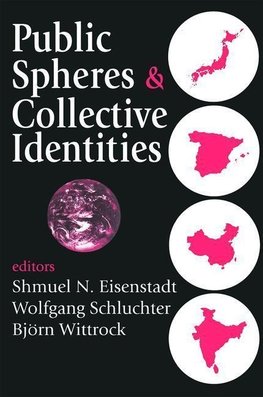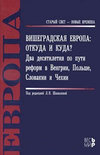
-
 Anglický jazyk
Anglický jazyk
Schluchter, W: Public Spheres and Collective Identities
Autor: Wolfgang Schluchter
Today it is assumed that we understand contemporary nationalism and nation-building. Researchers rarely consider the very different traditions from which such state-building emerged. Instead, there is almost too much discussion of the "global village", with... Viac o knihe
Na objednávku, dodanie 2-4 týždne
67.59 €
bežná cena: 75.10 €
O knihe
Today it is assumed that we understand contemporary nationalism and nation-building. Researchers rarely consider the very different traditions from which such state-building emerged. Instead, there is almost too much discussion of the "global village", with its supposed uniformity and inevitable trajectories. We need to view modernity as something other than a single condition with a preordained future. New visions of a modern civilization are emerging throughout the world, calling for a far-reaching appraisal of the older visions of modernization.
Following Eisenstadt's and Schluchter's introduction, Bjorn Wittrock explores the varieties and transitions of early modern societies, noting that only by looking at societies' collective identities and their modes of mediating in the public sphere can the distinguishing factors between modernity be appreciated. Sheldon Pollock discusses the use of vernacular language in India through its literary culture and polity, 1000-1500. Sanjay Subrahmanyam, sums up major developments in the recent historiography of South Asia from 1400 to 1750. David L. Howell focuses on the boundaries of the early modern Japanese state, including its political boundaries and the boundaries of collective identity and social status. Mary Elizabeth Berry examines public life in authoritarian Japan. Frederic Wakeman, Jr. probes the boundaries of the political game and how they were affected by the increased political centralization that developed after the disorder of the Ming-Qing transition during the seventeenth century. Alexander Woodside discusses territorial order and collective-identity tensions in Confucian Asia. Bernhard Giesen argues that the FrenchEnlightenment can be described as an extension of absolutist court culture. Finally essay, Victor Perez-Diaz examines the state and public sphere in Spain during the Ancient Regime contrasting two ideal types of states -- a "nomocratic" model and a "teleocratic" model.
This volume
- Vydavateľstvo: Routledge
- Rok vydania: 2000
- Formát: Paperback
- Rozmer: 229 x 152 mm
- Jazyk: Anglický jazyk
- ISBN: 9780765807144







 Nemecký jazyk
Nemecký jazyk 
 Ruský jazyk
Ruský jazyk 



